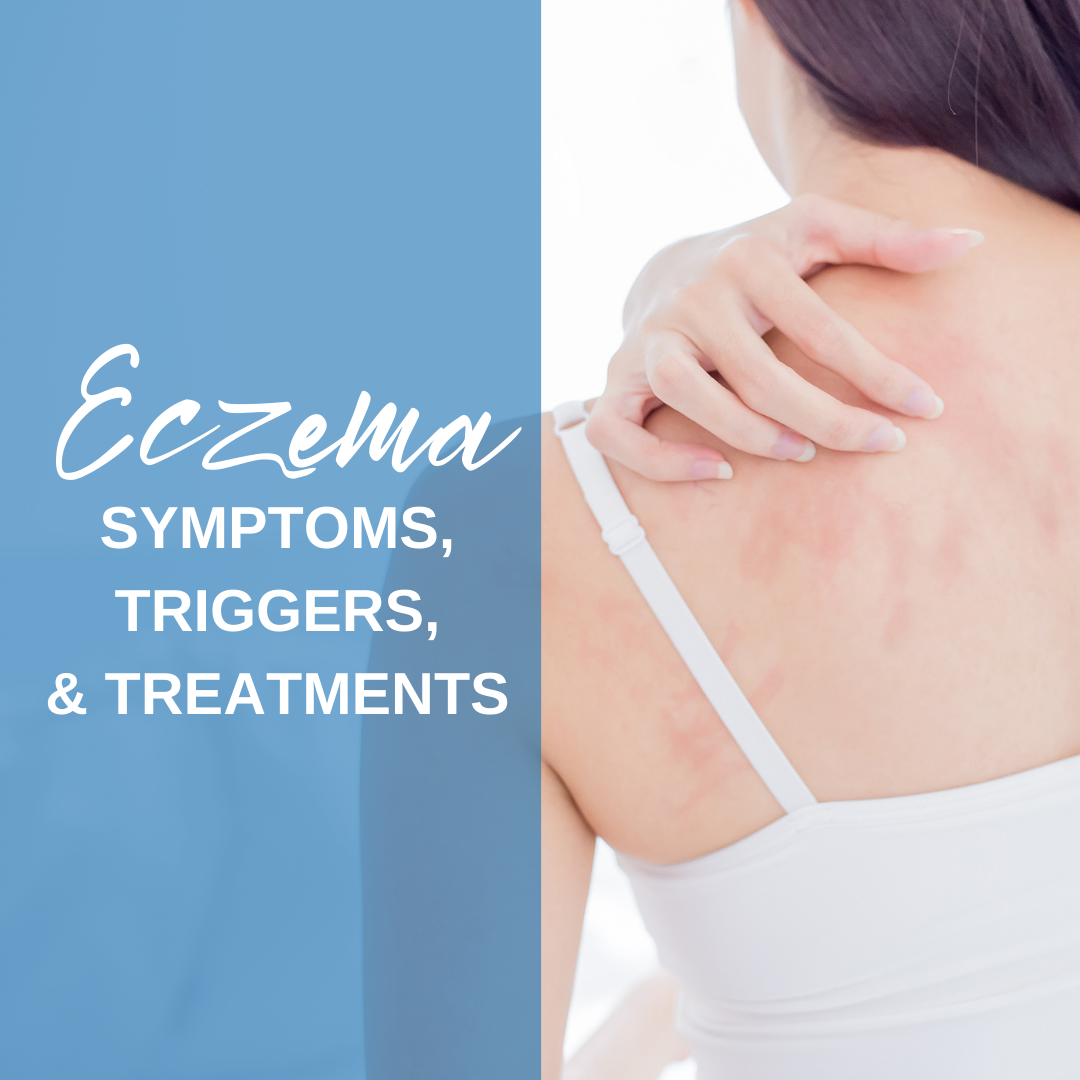Eczema: Symptoms, Triggers, and Treatments
According to the Cleveland Clinic, Eczema, or Atopic Dermatitis, affects approximately 15 million Americans each year. So, if you find yourself suffering from chronic, red, itchy skin, you are not alone! But how do you know if you have eczema? What triggers symptoms? When should you see a dermatologist? Read on to find out!
Symptoms
Signs of eczema vary from person to person, but include:
- Dry skin
- Itching
- Red to brownish-grey patches occurring on the hands, feet and ankles, upper chest, wrists and neck, and especially in the bends at the elbows and knees
- Small raised bumps
- Skin that appears thick, cracked or scaly
- Skin that is raw and sensitive from scratching
- Eczema is most common in infants and young children, but can occur later in life
- Eczema may occur in periodic flares, resolving itself and then reappearing months or years later
Triggers
- Dry Skin – When your skin is dry, it naturally becomes more irritated, itchy, and can bring on a stronger response. To stay ahead of dry skin, moisturize each time you bathe and more as needed.
- Irritants – The added fragrances, dyes, or preservatives in many common products can irritate your skin and increase symptoms. Read product labels carefully and try to avoid using those that do contain added dyes and perfumes.
- Temperature changes – Cold or warm weather can both have an adverse effect on flare ups. Cold weather brings with it drier air and warm weather can cause perspiration, both of which can lead to inflammation and scratching.
- Stress – While stress and anxiety don’t cause eczema, they can increase symptoms when the body releases cortisol, a stress hormone that increases inflammation. Using stress management techniques to reduce the release of cortisol may help.
Treatments
While there is no “cure” for eczema, treatments aim to heal the affected skin and reduce irritation.
- Moisturize skin 2x a day
- Identify and avoid triggers
- Using a humidifier
- Avoid tight-fitting clothing and harsh fabrics
- Use mild detergents and soaps
Ultimately, the best course of action is to see your dermatologist to identify a plan based on your individual symptoms and health. If eczema irritation is affecting sleeping or daily activities, or if you are not experiencing relief from common remedies, please contact us to set up an appointment. 706-691-7079. Savannah River Dermatology is located at 575 Furys Ferry Road.








